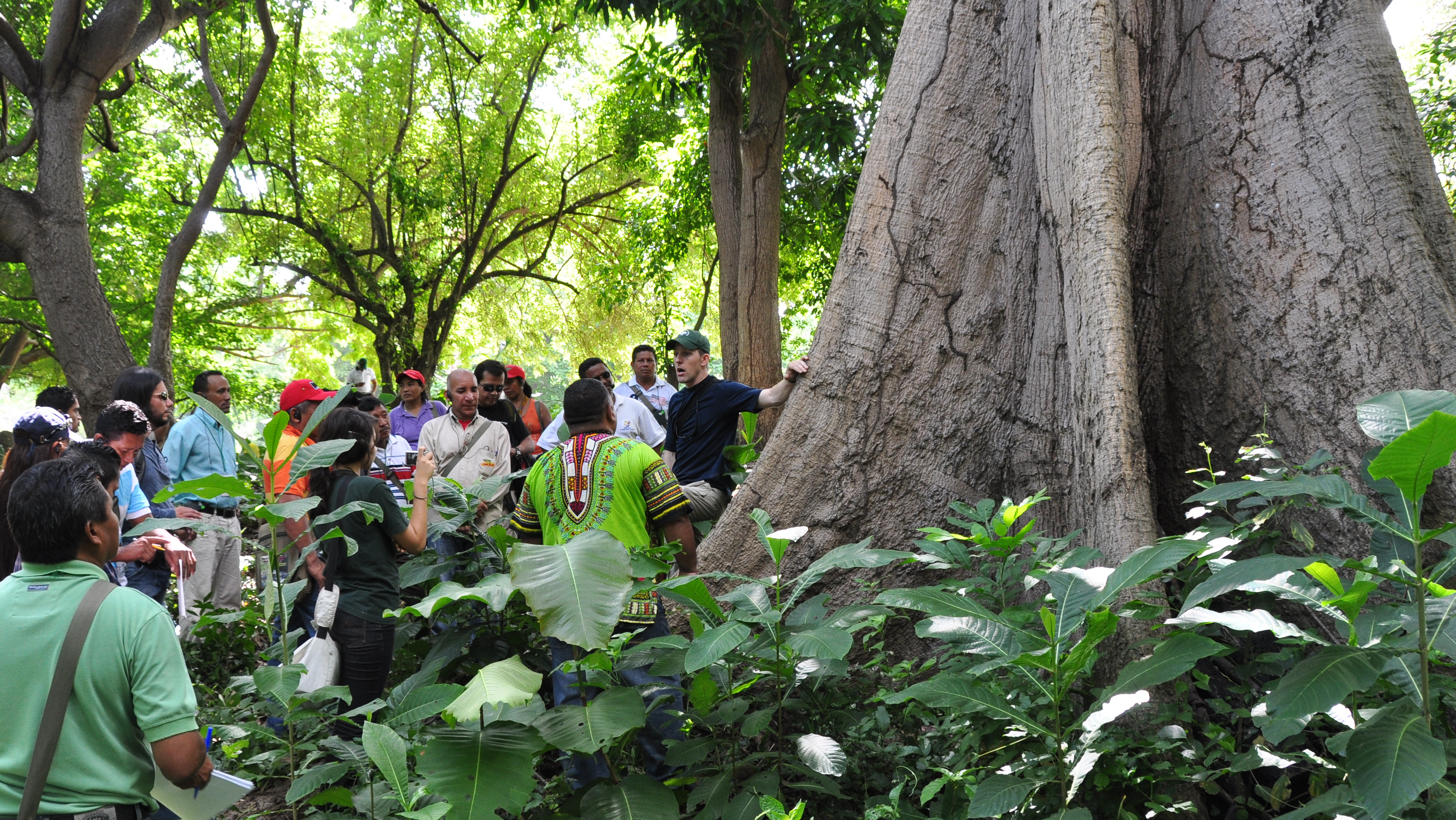
Wayne Walker, a Woods Hole Research Center scientist, in the forest with indigenous peoples. Photo courtesy of Woods Hole Research Center
In advance of the Global Climate Action Summit in San Francisco from Sept. 12-14, 2018, Mongabay special projects editor Willie Shubert encouraged me to attend and cover the event. In several phone discussions, we decided I should focus my coverage mainly in an area of climate mitigation I have not written about previously: the impact of indigenous peoples on the forests in which they live, and the injustice that so many live on ancestral land to which they no longer hold title.
The story is here. It’s a story that resonated with readers and was retweeted widely, including by the Ford Foundation, which has 157,000 followers. An excerpt:
“Economic analyses make it fairly clear that indigenous peoples’ lands that are titled and secured, especially in Latin America where the data is most abundant, have deforestation rates that are three to four times lower than similar lands not held by indigenous peoples,” Peter Veit, director of the Land and Resource Rights initiative at the World Resources Institute, told Mongabay. “Having title to the land is critical.”
